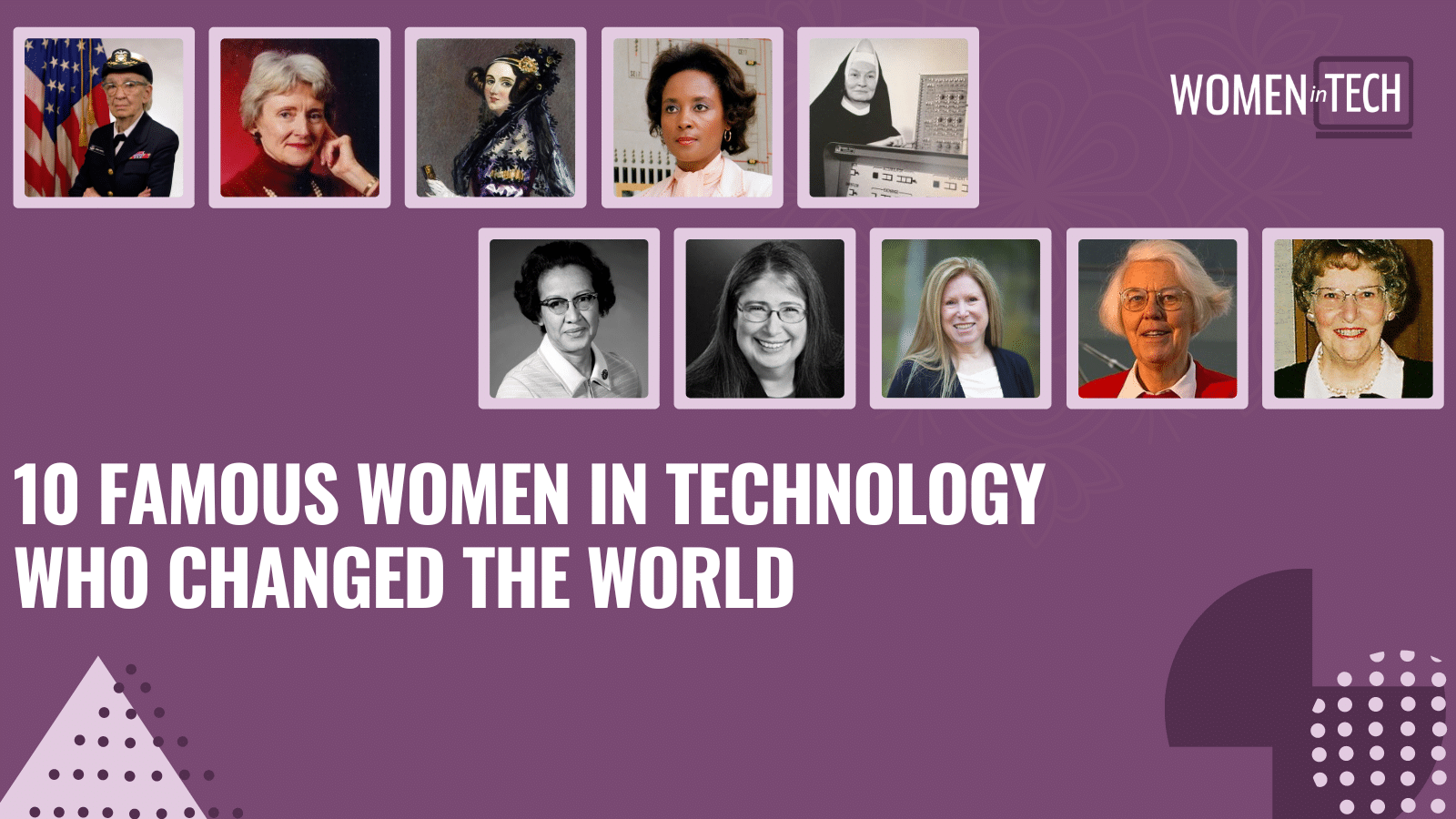When discussing the history of technology, we often hear about machines or men who were the first programmers and innovators. However, women have made monumental contributions to programming languages, algorithms, and the tech industry as a whole—often without the recognition they deserve.
Women’s achievements in technology have not only shaped the past but continue to inspire future generations. Here are 10 of the most famous women in technology who have changed the world.
1. Ada Lovelace: The First Programmer
Born: 1815 | Died: 1852 | Known for: Writing the first computer algorithm
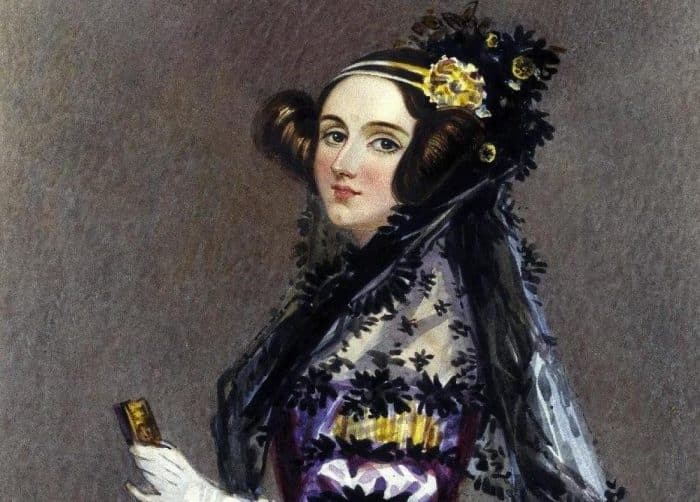
Ada Lovelace, born in London, is often celebrated as the first computer programmer. Her mother, determined to nurture Ada’s analytical mind, insisted she study mathematics and science.
In her groundbreaking notes on Charles Babbage’s proposed Analytical Engine, she envisioned how the machine could compute not just numbers but complex problems. This foresight laid the groundwork for modern computing.
Her legacy is celebrated annually on Ada Lovelace Day, which highlights the contributions of women in STEM fields.
2. Grace Hopper: The Queen of Code
Born: 1906 | Died: 1992 | Known for: Developing the first compiler
Grace Hopper was a trailblazer in computer science, contributing significantly to early programming languages. She developed the first compiler, which translated programmers’ instructions into machine-readable code, and helped create COBOL, one of the earliest high-level programming languages.
Her career spanned decades, including service in the U.S. Navy, where she retired as its oldest officer at age 79. In 2016, she posthumously received the Presidential Medal of Freedom, honoring her pivotal role in shaping the digital age.
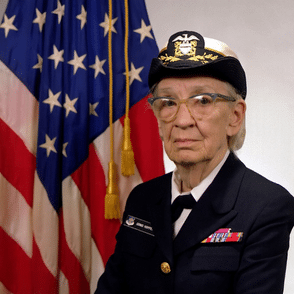
3. Annie Easley: A Pioneer of Hybrid Technology
Born: 1933 | Died: 2011 | Known for: Code development for hybrid car batteries
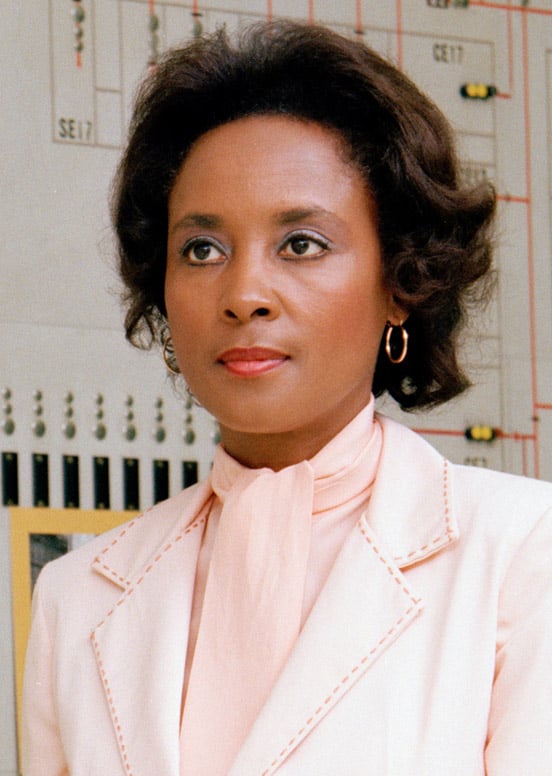
Annie Easley attended Xavier University where she majored in pharmacy for around 2 years. She then began her career at NACA (later NASA) as one of only four African American employees at the time. She worked on code that contributed to energy-efficient batteries and space technology.
Easley actively encouraged more women and African Americans to enter STEM fields, inspiring countless individuals to pursue tech careers.
4. Mary Wilkes: The First Personal Computer User
Born: 1937 | Known for: Developing the first personal computer
Mary Wilkes was born in Chicago and graduated from Wellesley College in 1959 with a degree in philosophy. She was told in the eighth grade by her geography teacher that she would be a computer programmer when she grew up.
Mary helped develop the LINC (Laboratory Instrument Computer), regarded as the first personal computer. She even had one in her home—a groundbreaking concept at the time.
As a programmer and technical writer, Mary paved the way for the development of user-friendly computing, making technology more accessible to the average person.

5. Adele Goldberg: A Graphical User Interface Innovator
Born: 1945 | Known for: Co-creating the Smalltalk programming language

Adele Goldberg was born in Ohio and received a bachelor’s degree in mathematics from the University of Michigan and later received a PH. D in information science from the University of Chicago in 1973.
Adele was part of the Xerox PARC team that developed Smalltalk-80, a programming language that introduced the concept of overlapping windows—a precursor to modern graphical user interfaces (GUI).
Her ideas profoundly influenced the design of Apple’s Macintosh. Without her contributions, today’s computers might look entirely different.
6. Mary Keller: Champion for Women in Computer Science
Born: 1913 | Died: 1985 | Known for: Co-developing BASIC programming language
Sister Mary Keller broke barriers in computer science, becoming the first woman to earn a Ph.D. in the field. She co-developed BASIC, a beginner-friendly programming language that opened doors for countless learners.
As an advocate for women in STEM, she encouraged working mothers to bring their babies to class—a progressive stance for the time.
As an advocate for women in STEM, she encouraged working mothers to bring their babies to class—a progressive stance for the time.
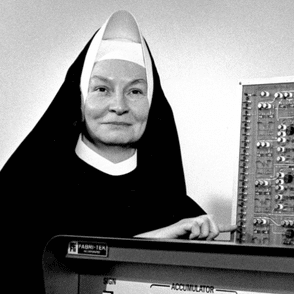
7. Radia Perlman: The Mother of the Internet
Born: 1951 | Known for: Inventing the Spanning Tree Protocol (STP)

Born in New Jersey, Radia attended Massachusetts Institute of Technology and learned programming for a physics class. She received a B.S and M.S in mathematics and a PH.D in Computer science from MIT in 1988.
In the 1970s Radia developed a child-friendly education language call TORTIS. The programming language was installed into a turtle and research was conducted on young children. In the 1980s Radia revolutionised network efficiency by inventing the spanning tree algorithm and the spanning tree protocol. The spanning tree algorithm transformed ethernet from a single wire CSMA into a protocol that could handle large clouds.
8. Katherine Johnson: The Human Computer
Born: 1918 | Died: 2020 | Known for: Calculations for NASA’s first manned spaceflight
Known as one of the most influential Black women in tech, Katherine Johnson’s mathematical brilliance ensured the success of pivotal NASA missions, including John Glenn’s orbital flight. Her ability to perform complex calculations manually earned her a reputation as a “human computer.”
Johnson’s story, highlighted in the film Hidden Figures, showcases her crucial role in advancing the U.S. space program during a time of racial and gender inequality.
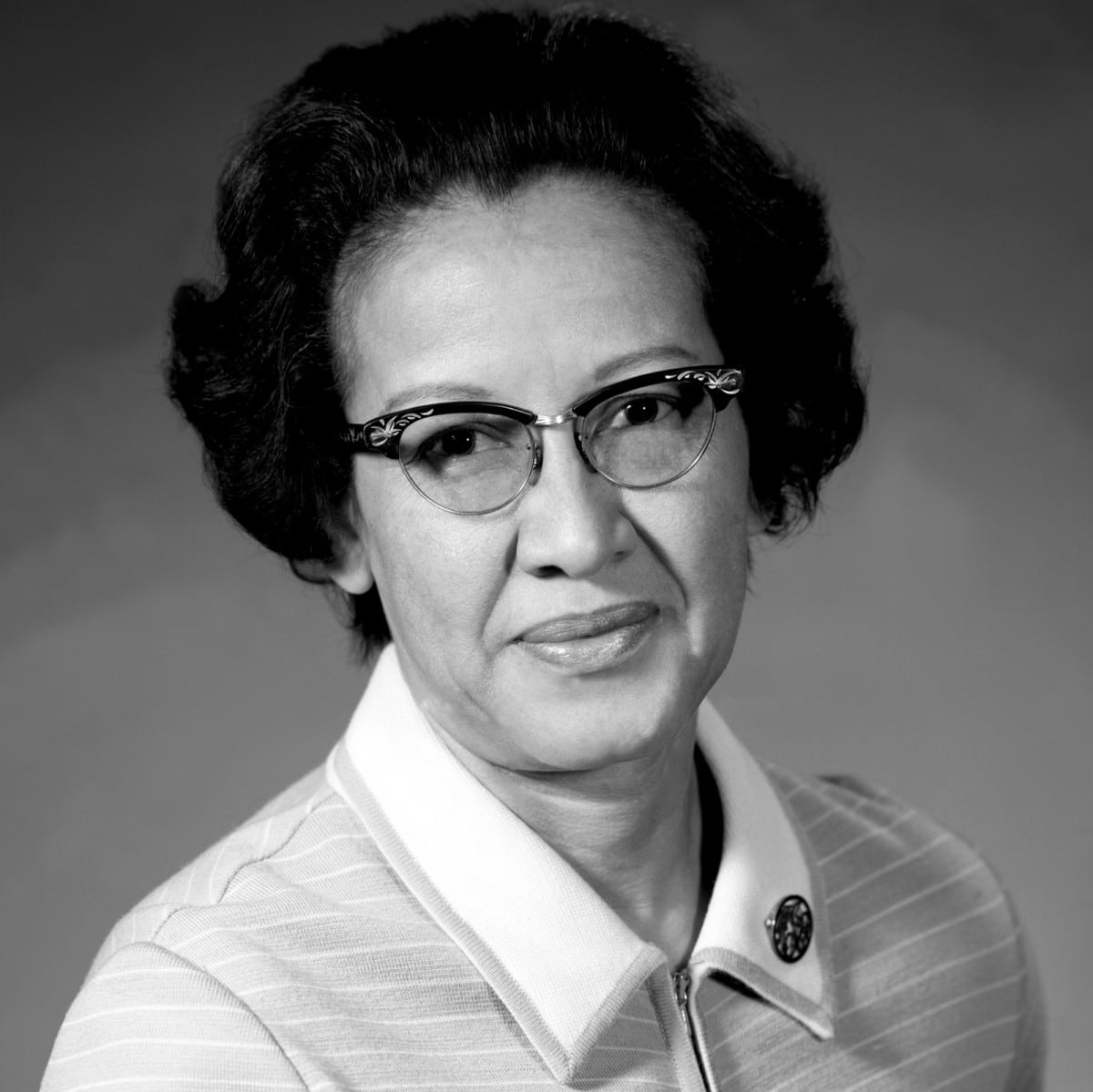
9. Karen Spärck Jones: The Search Engine Pioneer
Born: 1935 | Died: 2007 | Known for: Introducing IDF weighting in search engines
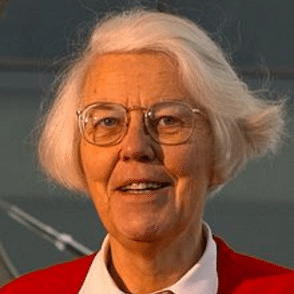
Karen Spärck Jones laid the foundation for modern search engines with her work on Inverse Document Frequency (IDF), a method still used today to rank search results.
Her contributions to natural language processing and information retrieval systems revolutionised how we access information online.
10. Elizabeth Feinler: Architect of Internet Domains
Born: 1931 | Known for: Creating the domain name system
Elizabeth Feinler’s team at the Stanford Research Institute managed early internet directories. Her work on transitioning to the Domain Name System (DNS) introduced the familiar “.com,” “.org,” and “.gov” protocols.
Her contributions are foundational to the internet as we know it today.
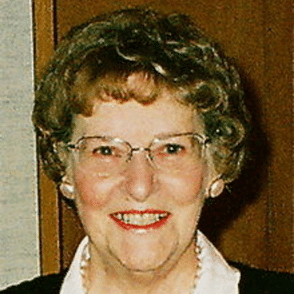
Why Highlight Women in Technology?
Recognising these pioneers is more than a history lesson—it’s a call to action. By celebrating their achievements, we encourage more women to pursue careers in STEM, challenge gender biases, and innovate for a better future.
If you’re inspired by these women and want to learn more, explore our Women in Tech Blog for stories, resources, and opportunities in the tech industry.

